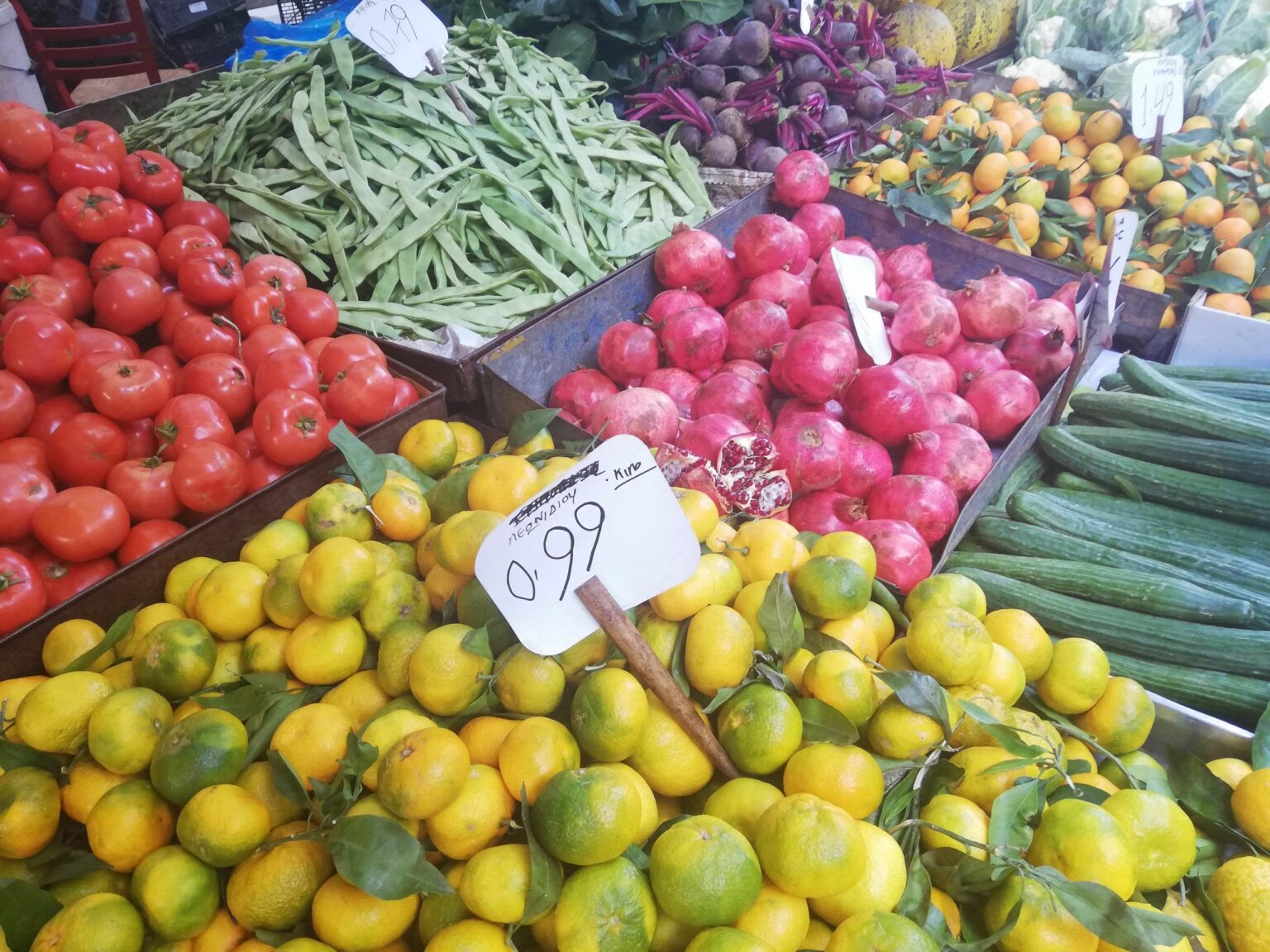Some people think that Greek food is all about meat. Many have heard of Greek gyros or souvlaki. Indeed, Greeks do eat grilled meat. But the Greek kitchen is so much more than meat. In fact, in traditional Greek cuisine, there are hundreds of wholesome, hearty meals without a trace of meat in them.
Vegetarian and Vegan Food in Greece
Traditional Greek cooking is based on fresh seasonal vegetables, fruits, grains, legumes, herbs, spices, and olive oil – perfect for vegetarians (and often for vegans as well). Creating delicious and authentic Greek meals that meet vegetarian guidelines is a snap. Here is a sum-up of common Vegetarian and Vegan Food in Greece.
Lathera
The most popular category of vegan dishes foods is called Lathera. Also spelled ladera, is a classic Greek dish that grew out of simple peasant-style cooking. The Greek word for oil is lathi and these dishes are oil-based, thus the name which translates loosely to “with oil” or “oily.” It goes without saying in Greece that oil refers to olive oil.
Lathera dishes are almost always vegetarian, made up of one or more vegetables cooked in an olive oil-based sauce that often includes tomatoes, garlic, herbs, and spices. The earliest versions of lathera were tomato-less because tomatoes were not introduced in Greece until the 17th century and they did not really catch on until the 19th century. Nonetheless, these dishes are a staple of the cuisine in modern times.
My kids love Lathera dishes. They are favorites in Greece any day of the week but are especially appreciated during Lent and other times of fasting when meat and dairy products are restricted in the Greek Orthodox tradition.
The most famous lathera dishes are fasolakia (green beans), bamies (stewed okra), briam (zucchini, potatoes, eggplant, and bell peppers baked together with tomato sauce), or melitzanes imam (baked eggplant in a tomato sauce).
Lathera dishes are often served sprinkled with feta cheese or with chunks of feta, but this option does not work for vegetarian and vegan diners. Instead, use crusty bread as a great accompaniment to help sop up the delicious juices.

Pulses and Legumes
Greeks eat a lot of stews and soups made with pulses or legumes – especially when the weather gets cold. You’ll often find a pot of fasolada (bean soup) simmering on someone’s stove. Many consider it our national dish. Other famous dishes are revythia (chickpeas or garbanzo beans), mavromatika fasolia (black-eyed peas, sometimes in a salad and other times in a tomato sauce), or fakes (lentils). Each one of these meals is chock-full of protein and kids usually like them.

Meatless Versions of Greek Classics
Lots of traditional Greek food are very popular in vegetarian versions (orfana). For example, gemista, stuffed tomatoes and peppers with rice and ground beef. You can find a great list of the healthiest rice here. You can get gemista orfana without the beef. These dishes are as popular as their original versions (often with raisins and pine nuts mixed in), so they’ll be easy to find.
The same goes for dolmadakia, which are vine leaves stuffed with rice and ground beef (sometimes in an avgolemono or egg-lemon sauce), and lahanodolmades, which are cabbage leaves stuffed with rice and ground beef. They all come in orfana-style (no meat).

Risottos
An all-time favorite in my household, the vegetable-based risottos! These are usually totally vegan on their own. If you eat dairy, enjoy them with some Greek yogurt or feta cheese. Spanakorizo (spinach rice) is probably the most popular. It’s creamy and flavorful, with the rice adding a nice texture. Other traditional recipes include lahanorizo (cabbage rice) and prasorizo (leek rice). While in Greece, you will notice the local variations on the islands you visit.

Vegetable dishes
Greek cuisine features many delicious (but often underrated) vegan dishes include aginares a la polita (artichokes in a lemony-olive oil sauce), arakas (peas in tomato sauce), gigantes (beans in tomato sauce), and kounoupidi kokkinisto (cauliflower in tomato sauce). If you eat eggs, then try aginares avgolemono – artichokes in an egg-lemon sauce. An uncommon choice but definitely worth trying!

Order vegetarian and vegan food in Greece
How do you order vegetarian and vegan food in Greece when none of these options are on the menu? Don’t worry, because there are many vegetarian and vegan mezze or side dishes. It’s easy to make a meal out of these appetizers. For instance, fava, a comforting lemony dip made from split yellow peas, or melitzanosalata (a spread made from charred eggplant or aubergine).
Skordalia is a vegan garlicky dip made with pureed potatoes or bread. It usually accompanies fried salt cod, but it’s delicious with patzaria (boiled beets). If you eat dairy, you can’t go wrong with tzatziki –the most famous of all Greek dips. Tzatziki is based on yogurt with lots of cucumber and garlic. A classic Greek vegetarian mezze!

You will also find fried mezze on the menu. Many of these are vegetarian, some even totally vegan. Ask for kolokithakia tiganita (fried zucchini or courgette), choose french fries, tyri saganaki (fried cheese) or kolokythokeftedes (fried zucchini balls). Sometimes, the vegetables may be fried in an egg batter, so do check this with the restaurant.
Salads and boiled vegetables
You just can’t go wrong with a delicious Greek salad or simple boiled veggies. Horta are wild greens, that are delicious eaten as a salad with some lemon juice sprinkled on top.

Just ask the tavern or restaurant what they have. And always check before you order – sometimes there’ll be eggs (avga in Greek) or milk (gala in Greek) in the batter. Vegetable meals can also contain meat-based bouillon.
Want to learn more about Greek food and maybe taste some too? Consider joining a food tour and experience the amazing Greek cuisine first hand!









